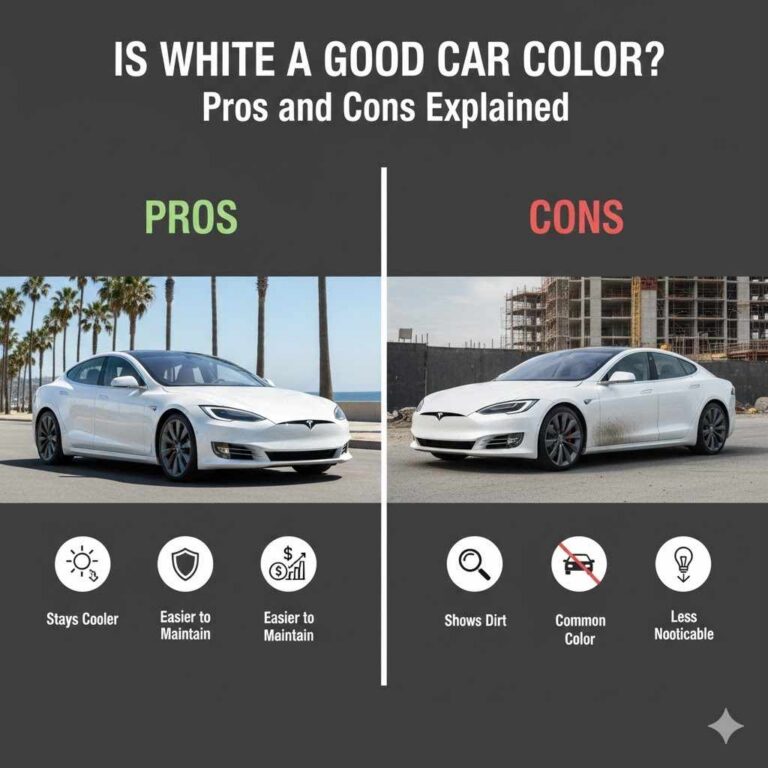Car A/C Only Works When Driving: Cool Solutions!
Car A/C systems often only work while driving due to low refrigerant levels or a failing compressor. These issues prevent adequate cooling when the vehicle is stationary.
Car air conditioning systems are designed to provide comfort during warm weather. A common problem arises when the A/C only functions while driving, leaving passengers feeling hot when idling. This issue can stem from various factors, including low refrigerant levels, a malfunctioning compressor, or electrical problems.
Identifying the root cause is essential for effective repairs. Regular maintenance can prevent these issues, ensuring the A/C operates smoothly at all times. Understanding the mechanics behind your A/C system helps you make informed decisions about repairs and maintenance. Keeping your vehicle’s cooling system in top shape enhances comfort and overall driving experience.
The Mystery Of Car A/c Performance
The A/C system in your car can act strangely. It may only work while driving. This can be frustrating for many drivers. Symptoms of this issue include weak airflow and strange noises. The A/C might blow hot air while idling. This issue often points to a faulty compressor or low refrigerant levels.
Common misconceptions exist regarding this problem. Some believe it’s normal for A/C performance to drop. Others think the fan speed is the main issue. In reality, the compressor plays a crucial role in cooling. It needs to be checked by a professional. Ignoring these signs can lead to costly repairs.
Mechanics Behind A/c Functionality
The A/C system relies on the engine to function properly. As the engine speed increases, the compressor works harder. This leads to better cooling performance. When the car is stationary, the engine runs at a lower speed. This can cause the A/C to underperform or stop working altogether.
Air flow dynamics also play a crucial role. Driving creates wind that helps cool the condenser. Without this airflow, the A/C may not produce cold air. Regular maintenance ensures that the A/C system remains efficient. Checking for leaks or blockages can help maintain optimal performance.
Key Factors Affecting A/c Efficiency
The refrigerant levels in your car’s A/C system are crucial. Low refrigerant can cause poor cooling. It may happen due to leaks or evaporation. Regular checks can help maintain proper levels.
Compressor health is also very important. The compressor pumps refrigerant through the system. A weak or failing compressor can affect A/C performance. Listen for unusual noises when the A/C is on.
Keep your A/C system well-maintained. This will ensure optimal performance while driving. Regular inspections can help identify issues early. Stay cool on the road by addressing these factors.
Diy Diagnostic Steps
Checking the refrigerant level is essential for your car’s A/C system. Low refrigerant can cause the A/C to work poorly. Use a manifold gauge to measure the refrigerant pressure. If the pressure is low, add more refrigerant.
Inspecting the compressor is another important step. The compressor pumps refrigerant through the system. Listen for any strange noises when the A/C is on. No noise may mean the compressor is not working. Look for any leaks or damage around the compressor area.
Professional Solutions
It’s important to know when to seek help for your car’s A/C issues. If the air conditioning only works while driving, it may indicate a problem. Signs include weak airflow or strange noises. These issues often worsen over time.
What to expect during a professional inspection can vary. The technician will check the refrigerant levels first. Low refrigerant can cause performance issues. They might also look for leaks in the system. A thorough inspection ensures proper repairs.
Regular maintenance is key. Keeping the A/C system clean helps prevent future problems. Always ask questions and understand the recommended services. This keeps your vehicle running smoothly.
Preventive Maintenance Tips
Regular check-ups help keep your car’s A/C in good shape. Schedule a visit to your mechanic every six months. They will inspect the system and top off refrigerant levels. This can prevent sudden breakdowns.
Seasonal adjustments are crucial for A/C performance. Before summer, check the coolant levels. In winter, run the A/C for a few minutes. This helps keep the system lubricated and functional.
Clean or replace air filters regularly. Dirty filters block airflow and reduce cooling efficiency. Always check for leaks in the system. Early detection can save you money on repairs.
Innovative Solutions
Many car owners face issues with their A/C only working while driving. This problem can stem from various causes. Upgrades can improve A/C performance. Consider adding a larger condenser or a more efficient compressor. These modifications enhance cooling while the car is stationary.
Emerging technologies can also play a role. New climate control systems use smart sensors. These sensors detect outside temperatures. They adjust A/C settings automatically. This ensures comfort even when the vehicle is not in motion.
Exploring hybrid A/C systems can provide a solution. These systems use both electric and engine power. They can function better while idling. Regular maintenance is crucial for optimal performance.
Making The Right Choice
Car A/C systems can be tricky. They often work well only while driving. This can lead to frustration for many drivers. Understanding the costs and benefits is important.
Regular maintenance can prevent future problems. Check the compressor, condenser, and refrigerant levels. This keeps the system running smoothly. Investing in quality parts is wise.
Future-proofing your system helps avoid costly repairs. Choose high-quality components that last longer. Consider a professional inspection to catch issues early. This saves money and time.
| Aspect | Cost | Benefit |
|---|---|---|
| Regular Maintenance | Low | Prevents major issues |
| Quality Parts | Higher | Lasts longer |
| Professional Inspection | Medium | Early problem detection |
Frequently Asked Questions
Why Is My Car Ac Only Working When Driving?
Your car AC may only work while driving due to low refrigerant levels, a malfunctioning compressor, or a clogged condenser. At idle, insufficient airflow can hinder cooling. Check for leaks and ensure proper system function to resolve the issue. Regular maintenance can also prevent this problem.
Why Does My Car Ac Work Better When Driving?
Your car’s AC works better while driving due to increased airflow. The vehicle’s movement enhances the condenser’s efficiency, allowing it to cool air more effectively. Stagnant air doesn’t circulate as well, making the AC less efficient at idle. Regular driving optimizes overall cooling performance.
Why Does My Ac Stop Working After Driving For A While?
Your AC may stop working after driving for a while due to low refrigerant, a failing compressor, or a clogged condenser. High engine temperatures can also cause the AC to shut off. Regular maintenance helps prevent these issues and ensures optimal performance.
Why Does My Car Ac Not Work When Idling?
Your car AC may not work while idling due to low refrigerant levels, a faulty compressor, or a clogged condenser. Insufficient airflow can also cause this issue. Regular maintenance can help prevent these problems and ensure optimal AC performance.
Conclusion
Experiencing a car A/C that only functions while driving can be frustrating. Understanding the underlying causes is essential for effective troubleshooting. Regular maintenance and prompt repairs can help restore full functionality. Stay proactive to ensure a comfortable ride, regardless of the weather.
Don’t let a faulty A/C ruin your driving experience.







